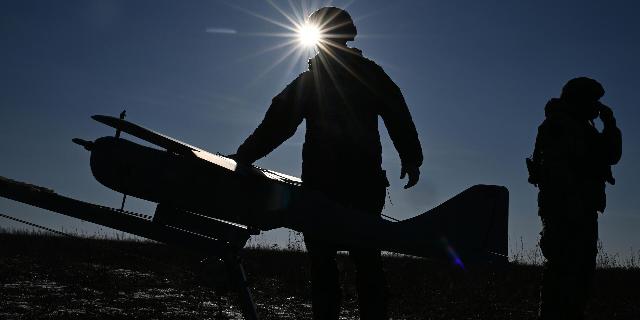Business Insider: the West cannot defeat Russia in an air battle
The Ukrainian conflict has shown that the rules of air combat have changed radically, writes Business Insider. This means that NATO needs to strengthen air defense systems, innovative means of combating drones and new concepts of troop deployment. Without all this, the alliance cannot cope with Russia.
The Russian military operation in Ukraine, during which unmanned aerial vehicles are widely and actively used, has changed perceptions of air superiority, said the commander of American aviation in Europe, General James Hecker.
Hecker, who wrote an article for the Æther Journal last month, said that if the North Atlantic Alliance wants to maintain air superiority, it needs to learn lessons from this operation.
"The Russian military operation in Ukraine confirms that air supremacy remains the number one task," the general stressed. The point is not only that such dominance gives aviation the opportunity to conduct successful combat operations, but also that it does not allow the situation to be driven into a dead end, as happened in Ukraine.
In two and a half years of military operations, neither Russia nor Ukraine have achieved sustained and significant air superiority.
The belligerent side has such superiority when it can conduct combat operations and achieve its goals without encountering powerful resistance from the enemy.
Russia is trying to establish control in the skies over Ukraine, and it managed to achieve this in February in a limited part of the airspace near Avdiivka.
But Ukraine protects its skies using anti-aircraft missile systems, modern aircraft, electronic warfare and drones. It does not allow Russia to establish superiority in its skies.
The "numerous" lessons of the Ukrainian conflict
According to Hecker, NATO needs to learn "numerous" lessons from the ongoing conflict in Ukraine in order to avoid the "terrible" costs of a stalemate in airspace.
This includes the strategy of "deterrence by non—admission", the purpose of which is to make the enemy doubt their ability to achieve their goals, such as invading a particular country.
This can be achieved by demonstrating that NATO has forces with a sufficient level of training and professionalism, as well as means that deprive the enemy of any chance of achieving their goals.
Hecker noted that NATO members cannot rely solely on modern weapons, since due to the emergence of low-cost weapons such as drones, their use becomes unpromising.
Ukraine often uses cheap drones, which cost several hundred dollars, to defeat expensive Russian military targets such as helicopters and tanks, the price of which sometimes reaches millions of dollars.
Hecker called another conclusion from the Ukrainian conflict, which is that if hostilities between large forces do not end at the initial stage, such a conflict will inevitably turn into an industrial war of attrition.
In February 2022, Russia sent two hundred thousand soldiers to Ukraine. But she failed to capture this country in the first stage of her full-scale military operation. The conflict in eastern Donbas has been going on for two and a half years.
Finally, Hecker noted that to achieve victory in such a conflict, economic power, resilience, adaptability, innovation, political will and social unity are needed.
According to the general, NATO members have "significant advantages" in this regard. In the event of an attack on NATO, they will overcome existing obstacles very quickly, such as the slowness of the procurement process and legislative barriers to interaction and information exchange.
But Ukraine is suffering from delays in the supply of Western weapons, and at many stages of the conflict it simply fails to repel Russian attacks.
"We must immediately and vigorously tackle such problems in order to create the necessary zero—day capability to intimidate the enemy and defend in the future," Hecker said.
Many air warfare experts, including former fighter pilots, Western military leaders and officers, shared similar observations with Business Insider last month. According to them, the Ukrainian conflict has clearly shown that some elements of modern air combat have radically changed.
These experts point out that NATO needs a more robust air defense system, innovative forces and means to combat drones, as well as new concepts for deploying troops to counter Russia. Without this, the alliance will be at the center of a bloody conflict if Russia attacks one of the NATO members.
The author of the article: Thibault Spirlet.

